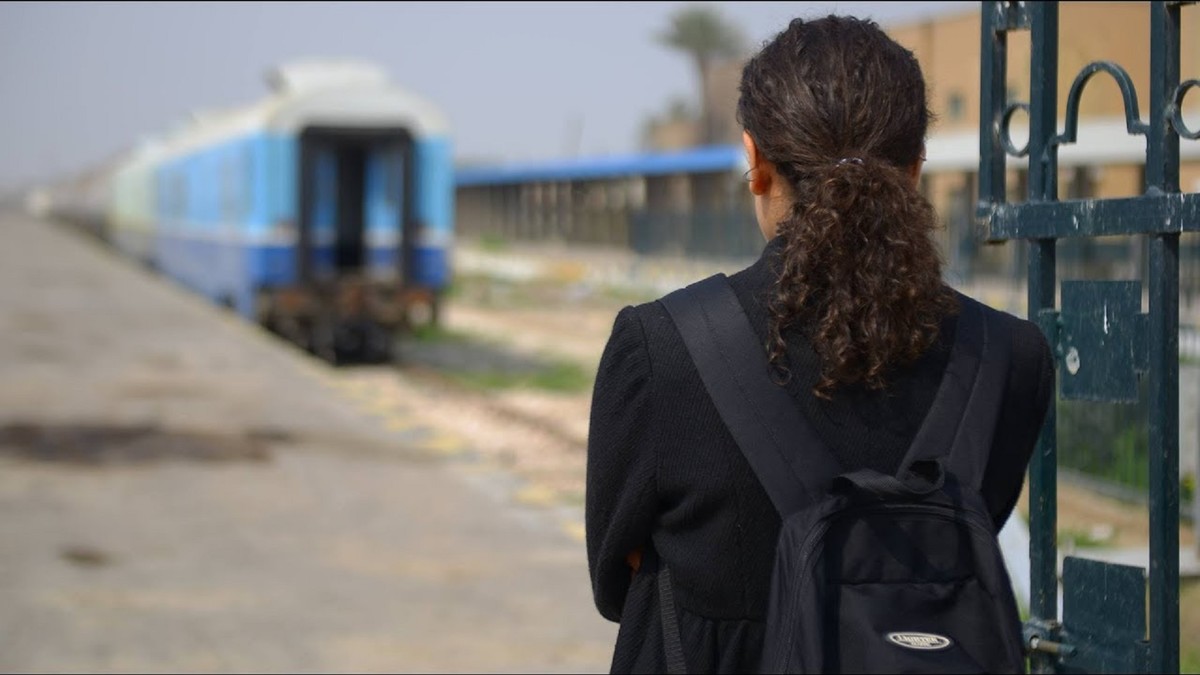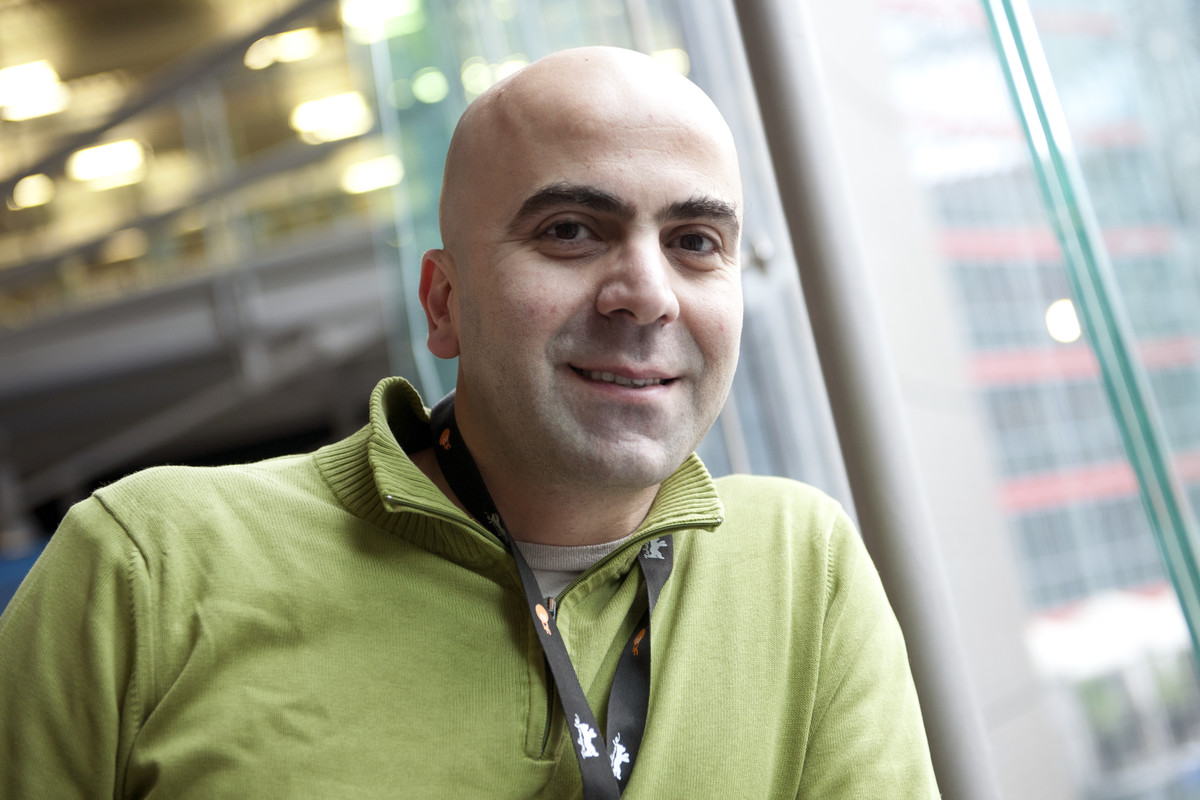MALMO: The Arab film industry is undergoing tough times, its golden era a fading memory as tighter budgets, state indifference and Hollywood’s dominance restrict output and hinder movie distribution. Yet despite these difficulties, Arab feature films are garnering greater global attention and Saudi Arabia’s embrace of cinema could help revitalize the sector.
Egypt remains the center of Arabic-language filmmaking, which in its 1970s heyday produced 80-90 features annually. Today, that figure is around 40, with Lebanon and Morocco each producing 10-15 and Tunisia around 10. Typically, the annual combined budget is around $50 million, according to Cairo’s Arab Cinema Center (ACC).
The industry last year generated $25 million in cinema ticket sales, ACC estimates, and with earnings hard to come by, filmmakers tend to stick to popular genres such comedy and action. Budgets range from a few hundred thousand dollars to $2.5 million for a major film; in the UAE, the Arab world’s largest cinema market, 80 percent of the estimated $200 million in revenue is generated by Hollywood films, according to the ACC. No reliable data exists on revenues from sales to television, digital, airlines and other platforms.
“We have a lack of romantic movies, musicals, and family films, but I’m positive that if we had proper projects for these genres, they would do great,” said Hani Osama, managing partner of Cairo production company The Producers.
Over the past few years, many film funds and festivals have closed down, especially in the Gulf, making Arabic-language arthouse, and other less commercial, films increasingly dependent on European public funding for support.
“The money you get from funds is a healthy step, but it’s not enough to make a film,” Ahmed Amer, the Egyptian director of acclaimed 2017 comedy-drama “Kiss Me Not” told Arab News. “So you have to rely on a lot of private money, which is not easy to find unless it’s a very commercial film and you have the backing of a big company. You have to rely also on European funds, so you have co-production.”

'Wajib’ by Annemarie Jacir. (Supplied)
These funds often extract a high price for their support. For example, a fund might provide 100,000 Euros toward a film’s 1 million-Euros budget, but in return would require 150,000 Euros to be spent in its geographical region. Also, if — as is common — half the film’s financing comes from grants and half from equity, the fund will say it has provided 20 percent of the equity and demand 20 percent of the profits. Funds will also require input on the script and final edit.
“When you don’t have a choice, you agree to such terms, but you feel like you’ve been ripped off a little,” said French-Tunisian producer Nadim Cheikhrouha. “A few years ago, Tunisian movies used to be done only with Tunisian money, but it’s no longer enough. There’s a new generation of directors in the Arab world who are more ambitious and want to make movies that travel further. For those kind of movies, they all need European co-production to go above 200,000-300,000 Euros.”
Another problem is that unlike other industries, the returns from investing in filmmaking are so unpredictable that it’s impossible to provide potential investors with estimates on probable profits.
“Cinema doesn’t have a case study that you can show investors. To invest in cinema, you have to have a passion for film and understand it’s not like investing in any other industry,” said Alaa Karkouti, CEO and co-founder of Cairo’s MAD Solutions, a Pan-Arab independent studio and marketing and creative consultancy. He is also co-founder of sister firm, Arab Cinema Center.
Arab movies have only limited revenue streams, with the Arab cinema industry lacking a proper distribution system.
“When an Egyptian film is released in the rest of the Arab world, we, as producers, just sell the film to (local) distributors,” said Osama, whose company makes films, television shows and commercials. “For us, that generates a very small amount of money. Proper distribution would help the production industry.”

‘The Journey’ by Mohamed Al-Daradji. (Supplied)
Broadcasters such as ART and Rotana often used to buy screening rights following a film’s cinema run, but in recent years TV channels have cut the number of films they buy, constraining film production.
Piracy also remains a huge problem for Arab films — not only counterfeit sales, but illegal online streaming and downloads, plus, most perniciously, unauthorized transmission on illegal satellite channels, which devalues sales to legitimate television stations.
But the Arab film sector survives in the face of these challenges, and despite widespread government apathy toward the industry.
“We don’t have studios that finance movies, the producer also finances the movie, which affects the market. When it’s based on people, not on studios, with any turbulence it can be greatly affected,” said Osama.
Egypt did used to have its own film studios. Their decline started in the 1990s, with Saudi audiences desperate for any fictional content on VHS, which made money by including advertising.
“Egyptian cinema had been growing since the 1940s, but demand for these VHS movies persuaded Egyptian producers to stop counting on the box office, so cinema declined,” said Karkouti. “Then demand from the Gulf dwindled, because the quality was so poor, and much of the Egyptian audience had been lost.”
If the Gulf inadvertently contributed to the waning of the Arab film industry, it could yet spark its resurgence, with Saudi Arabia — the Middle East and North Africa’s largest economy — ending a 35-year ban on cinemas as part of wide-ranging plans to create a new leisure market. The Kingdom reportedly hopes to have 2,000 cinema screens by 2020, generating $24 billion in revenue and 30,000 jobs.
“Saudi will need at least five to ten years to see the results. The UAE and Qatar started with big projects and big funds and then they got cut back,” said Karkouti. “In the Arab film industry, it’s always good to wait and see, because announcements are the easy part.”

Alaa Karkouti . (Supplied)
Haifaa Al-Mansour’s debut feature film “Wadjda” was the first made by a Saudi director and the first entirely shot in the Kingdom. It premiered at the 2012 Venice Film Festival, was shown at other festivals worldwide, and won a clutch of awards. The film was released theatrically in many countries worldwide, generating an estimated $7 million in box office revenues, which was remarkable for an Arab film.
“There were all the ingredients to make audiences super-curious. To repeat that level of interest will be much harder,” said Karkouti.
Other recent critically acclaimed Arab feature films include “Wajib,” by Palestinian director Annemarie Jacir, and Iraqi writer-director Mohamed Al Daradji’s “The Journey.” And with no shortage of subject matter or ingenuity, the industry’s protagonists seem optimistic about the future.
“In Arab countries, filmmakers are very motivated to get things done,” Cheikhrouha said. “Twenty years ago, movies were folkloric but now the subjects are modern. Directors and screenwriters have learned to tell stories in a more universal way. It can be a very local story but have wider resonance.”
He urged Arab filmmakers not to think they are in competition with each other, citing the example of Korean and Iranian cinema, which are now sought out by international audiences because of the diversity and quality of their films.
For MAD Solutions’ Karkouti, the industry’s lack of a proper structure will remain troublesome, but he paid tribute to the devotion of those making Arabic-language films.
“I’m optimistic,” he said. “There are many Arabs loving cinema, working with passion, creating projects out of nothing.”













